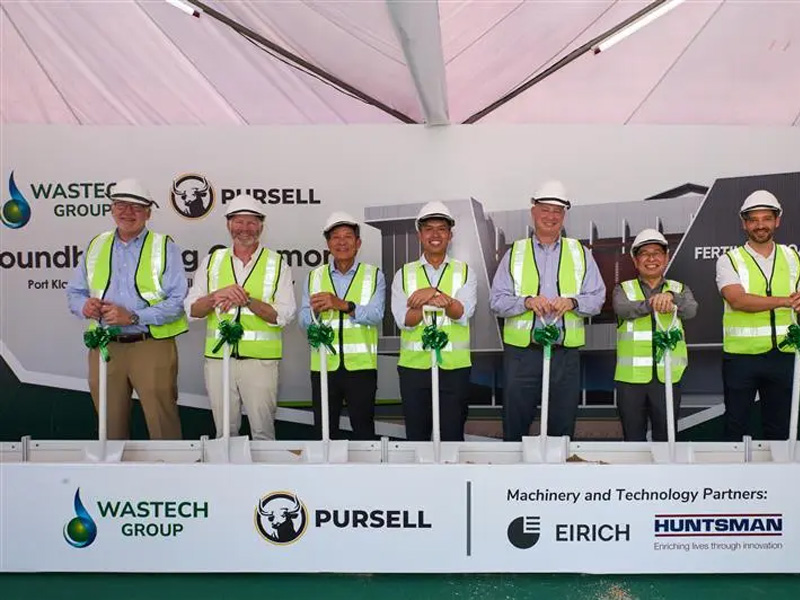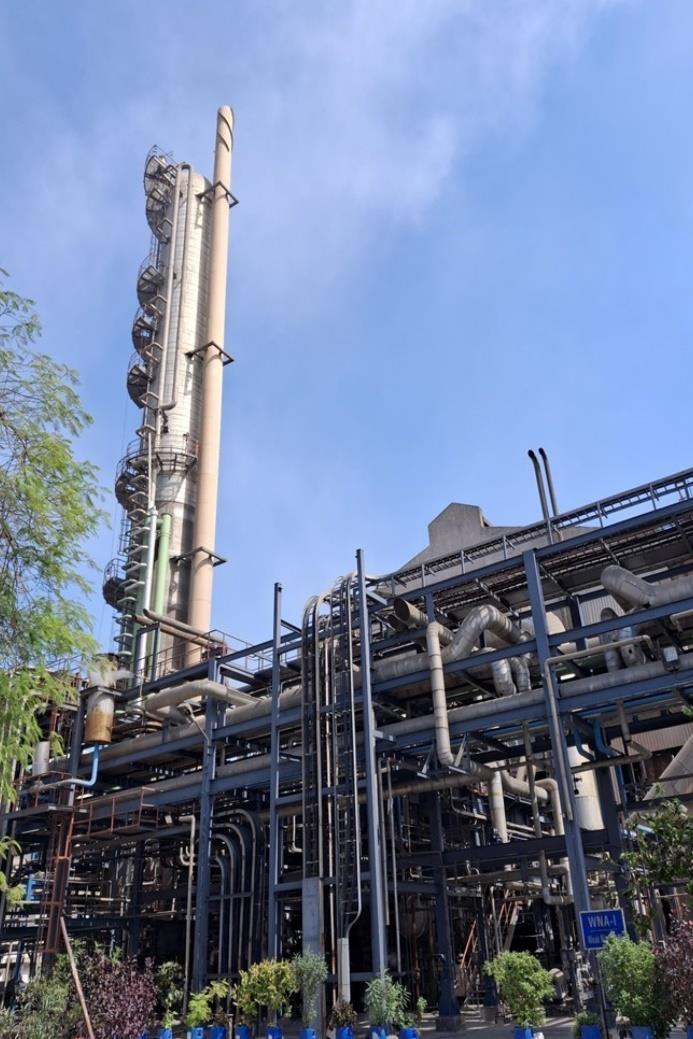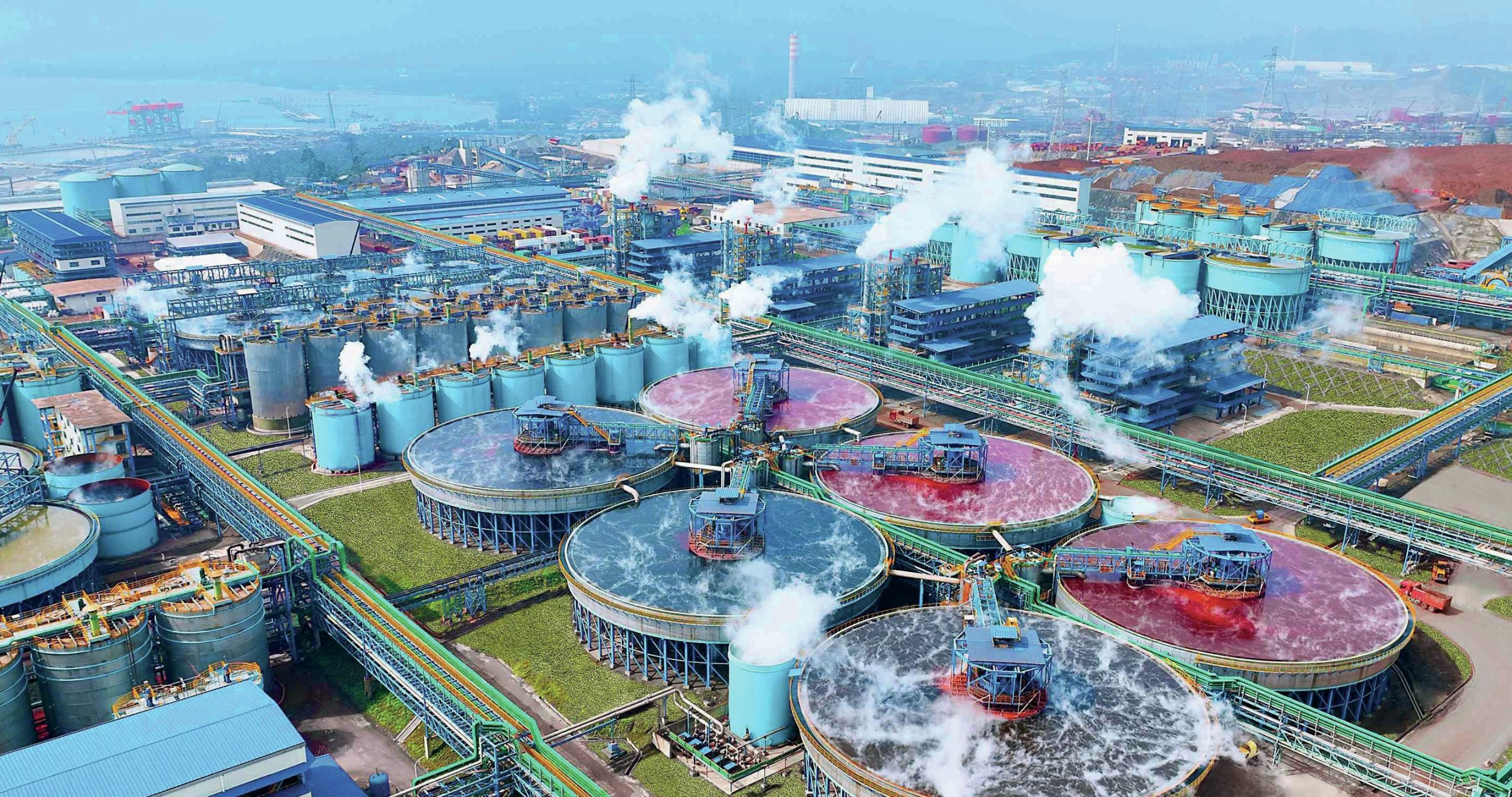Nitrogen+Syngas 365 May-Jun 2020

31 May 2020
Nitrogen Industry News Roundup
Nitrogen Industry News
TURKEY
Tecnimont wins urea/UAN plant contract
Tecnimont SpA has signed an EPC contract worth approximately e200 million with Gemlik Gübre Sanayii Anonim Sirketi for the construction of a new urea and urea ammonium nitrate (UAN) solutions plant at Gemlik, 125 km south of Istanbul. The plant will have a capacity of 1,640 t/d of granular urea and 500 t/d of UAN, and will be based on Stamicarbon urea technology, a fully owned subsidiary of the Maire Tecnimont group. The scope of work includes engineering, supply of all equipment and materials and construction and erection works. Project completion is planned within about three years of the contract beginning.
Gemlik Gübre is part of Yildirim Holding, a multi-billion dollar diversified group in Turkey active in several fields, from chemicals and fertilizers to ports and logistics, metals and mining. Ammonia and other fertilizers are already produced in the same industrial facility, with direct access to a Mediterranean sea port.
Pierroberto Folgiero, Maire Tecnimont Group CEO, commented: “We are extremely proud of this new achievement that confirms the Group leadership in the fertilizer sector and allows us to expand our geographical footprint in a strategic market such as Turkey”.
AUSTRALIA
Incitec abandons sale plans for now
Incitec Pivot says that it has abandoned plans to sell its fertilizer business for the time being following difficulties caused by the Covid-19 outbreak, including travel restrictions and market uncertainty. Incitec Pivot announced that it was considering the sale in September 2019 following a strategic review of operations which also looked at a possible demerger or retention with increased investment. However, while some major names were initially interested in what is Australia’s largest fertilizer distributor, North American fertilizer major Nutrien reportedly pulled out of talks in February due to the coronavirus epidemic. Incitec Pivot says that the pandemic has not had a “significant” impact on its operations so far, and added that the recent widespread rainfall across eastern Australia has created significant demand for its fertilizers.
SWITZERLAND
Sabic increases its holding in Clariant
The Saudi Basic Industries Corporation (Sabic) has announced that it has purchased additional shares in Swiss chemicals maker Clariant. The deal raises SABIC’s stake in the Swiss firm from 25% to 31.5%, subject to regulatory approvals. Sabic noted that the additional stake purchase is part of its strategy to achieve a leadership position in the specialty chemicals business. The move brings Sabic close to a 33.3% ownership threshold in Clariant which would trigger a mandatory takeover offer under Swiss law.
Sabic took an impairment charge of 1.5 billion riyals ($400 million) on its investment in Clariant in its third quarter. The companies had planned to merge their pigments and Masterbatches business, but this failed over differences on asset prices. Sabic took its present 24.99% stake in Clariant after the signing of a memorandum of understanding (MoU) in September 2018, but Clariant subsequently agreed to sell the pigment and Masterbatches business to PolyOne for $1.6 billion. Sabic is in turn in the process of a formal 70% takeover by Saudi Aramco, though both companies are publicly owned.
FINLAND
Ammonia combustion trials for shipping and power
Finnish technology group Wärtsilä says that it has initiated combustion trials using ammonia to help the company to prepare for the use of ammonia as a fuel that can contribute to reducing greenhouse gas emissions in both the shipping’s and energy sectors. As part of the tests, ammonia was injected into a combustion research unit to better understand its properties. Based on initial results, the tests will be continued on both dual-fuel and spark-ignited gas engines. These will be followed by field tests in collaboration with ship owners from 2022, and potentially also with energy customers in the future.
“The first tests have yielded promising results and we will continue to optimise combustion parameters,” said Kaj Portin, General Manager, Fuel & Operational Flexibility, Wärtsilä Marine. “This is an important step in making sure that Wärtsilä can provide the engine and fuel systems that ship owners need, whichever fuel they choose in the future.”
The company believes that ammonia is a promising, carbon-free fuel as the shipping industry explores how to fulfil the International Maritime Organization’s vision of reducing greenhouse gas emissions from shipping by at least 50% by 2050, while the energy sector is developing optimal paths for 100% renewable energy systems. Although ammonia is derived mainly from fossil sources today, in the future ammonia’s greenhouse gas footprint can be nearly eliminated if it is produced using electricity from renewable sources.
Wärtsilä acknowledges, however, that ammonia has a number of issues as a fuel; it ignites and burns poorly compared to other fuels and is toxic and corrosive, making safe handling and storage important. Burning ammonia could also lead to higher NOx emissions unless controlled either by post combustion treatment or by optimising the combustion process.
UNITED STATES
Settlement in lawsuit over ammonia plant reconstruction
A Southwest Arkansas Circuit Court has ruled against El Dorado Chemical Co and El Dorado Nitrogen in a lawsuit brought over the rebuilding of an ammonia plant at the company’s El Dorado, Arkansas facility. The ammonia plant was part of reconstruction work following an explosion at the site in 2012, and involved moving and renovating an idled second hand ammonia plant brought to the site from Louisiana. Lead contractor Leidos Constructors subcontracted piping and mechanical works to Global Industrial Inc, but Global Industrial was released part way through the project after criticisms of its work. Global subsequently sued Leidos and El Dorado for $10 million in unpaid invoices. The court ruling allocates $8.8 million in payments, including costs and interest, to the two El Dorado companies.
JAPAN
Feasibility study on renewable ammonia combustion
Australian energy company Woodside has signed an agreement with Japanese companies JERA Inc, Marubeni Corporation and IHI Corporation to undertake a joint study examining the large-scale export of hydrogen as ammonia for use decarbonising coal-fired power generation in Japan. The consortium has received approval from Japan’s New Energy and Industrial Technology Development Organization (NEDO) for a feasibility study covering the entire hydrogen-as-ammonia value chain. The study will examine the construction and operation of world-scale ammonia facilities and the optimisation of supply chain costs. As part of the study, Woodside will be investigating the transition from ‘blue’ to ‘green’ hydrogen for export. ‘Blue’ hydrogen is produced from gas using steam methane reforming, with related carbon emissions offset. Green hydrogen is produced from renewable energy using electrolysis.
Woodside CEO Peter Coleman said the agreement was another step forward in Woodside’s exploration of the potential of hydrogen as a clean fuel of the future. “Woodside and its partners in Japan have forged new energy pathways before, and we can do so again, as we expect by 2030 to see large-scale hydrogen production around the world and we intend to be part of that.”
INDIA
NFL working to keep up fertilizer supply during lockdown
India’s public-sector producer National Fertilizers Limited (NFL) says that it is working to ensure an adequate supply of fertilizers to farmers during the country’s extended lockdown, with its urea plants in Nangal, Bathinda and Panipat and two units at Vijaipur operating fully and producing at more than 11,000 t/d. This follows the Indian government’s announcement that key industries such as agriculture, fertilizers and goods transportation will be allowed to resume fully from 20th April, lifting restrictions on farming, plantations and fertilizer units to allow harvesting operations. Labour and logistical shortages over the last two months as a result of India’s lockdown measures have severely delayed the crucial rabi harvesting season, which normally ends in March. The kharif sowing period, which generally begins in April, has also been affected.

Commissioning at the new Ramagundam Fertilizers and Chemicals Ltd (RFCL) plant has also been interrupted by the Covid-19 outbreak. RFCL, a joint venture between NFL, Engineers India limited (EIL) the Fertilizer Corporation of India Ltd, GAIL India Limited, the HTAS consortium and local government, was to have begun commissioning in April at its new 3,850 t/d ammonia-urea unit. However, employees are now furloughed until the end of India’s pandemic lockdown.
BANGLADESH
Credit line for new urea plant
The Multilateral Investment Guarantee Agency (MIGA), a member of the World Bank Group, has issued a guarantee for $357 million to cover a non-shareholder loan from HSBC to the Bangladesh Chemical Industries Corp (BCIC) for the Ghorasal Polash urea project. The guarantee provides coverage for principal and interest payments on the loan for up to 14 years.
The project involves the construction, installation, and operation of the $1.5 billion Ghorasal Polash urea plant in the Narsingdi district of Bangladesh. The new plant will have a capacity of 900,000 t/a of urea. State-owned BCIC will own and operate the plant, with engineering, procurement, and construction led by a consortium of Mitsubishi Heavy Industries and the China National Chemical Engineering Construction Company, with Marubeni acting as coordinating agent for the consortium, financing parties and the project owner.
The project aims to help Bangladesh reach self-sufficiency in fertilizer production, more than tripling the capacity of the two obsolete fertilizer plants it is replacing (Urea Fertilizer Factory and Polash Urea Fertilizer Factory), whilst using the same amount of natural gas, simultaneously reducing the environmental footprint of Bangaldesh’s urea production, generating less waste and incorporating carbon capture technology to significantly reduce carbon dioxide emissions. Overall around 433,000 t/a of carb on dioxide emissions will be saved. Furthermore, the new plant will produce urea at about $140/t less than it costs to import fertilizer, resulting in significant cost savings and related reductions in the government’s fertilizer subsidy bill. Agriculture contributes around 15% of Bangladesh’s annual income and 45% of its total employment.
NETHERLANDS
Commercial reference for new catalyst
Clariant says that OCI Nitrogen’s ammonia production plant in Geleen has seen significant performance improvements via what is the first commerical installation of its Refor-Max 330 LDP Plus steam reforming catalyst. OCI Nitrogen is a major European fertilizer producer and the world’s largest producer of melamine, both depending on ammonia from the company’s AFA 2 ammonia plant; a Bechtel design with a capacity of 1550 t/d and a side-fired Foster Wheeler reformer. Before the turnaround in 2018, pressure drop over the front end was a crucial production limitation for OCI, but installation of the new catalyst, and optimisation of catalyst volumes in other reactors, have removed this limitation, significantly increasing the plant’s energy and production efficiency. Clariant calculates that this will result in savings of more than e300,000 over the expected catalyst lifetime of 8 years.
ReforMax 330 LDP Plus owes its pressure drop reduction capacity to a proprietary 8-hole floral shape, which allows higher gas throughput and/or lower pressure drop as well as improved heat transfer.






